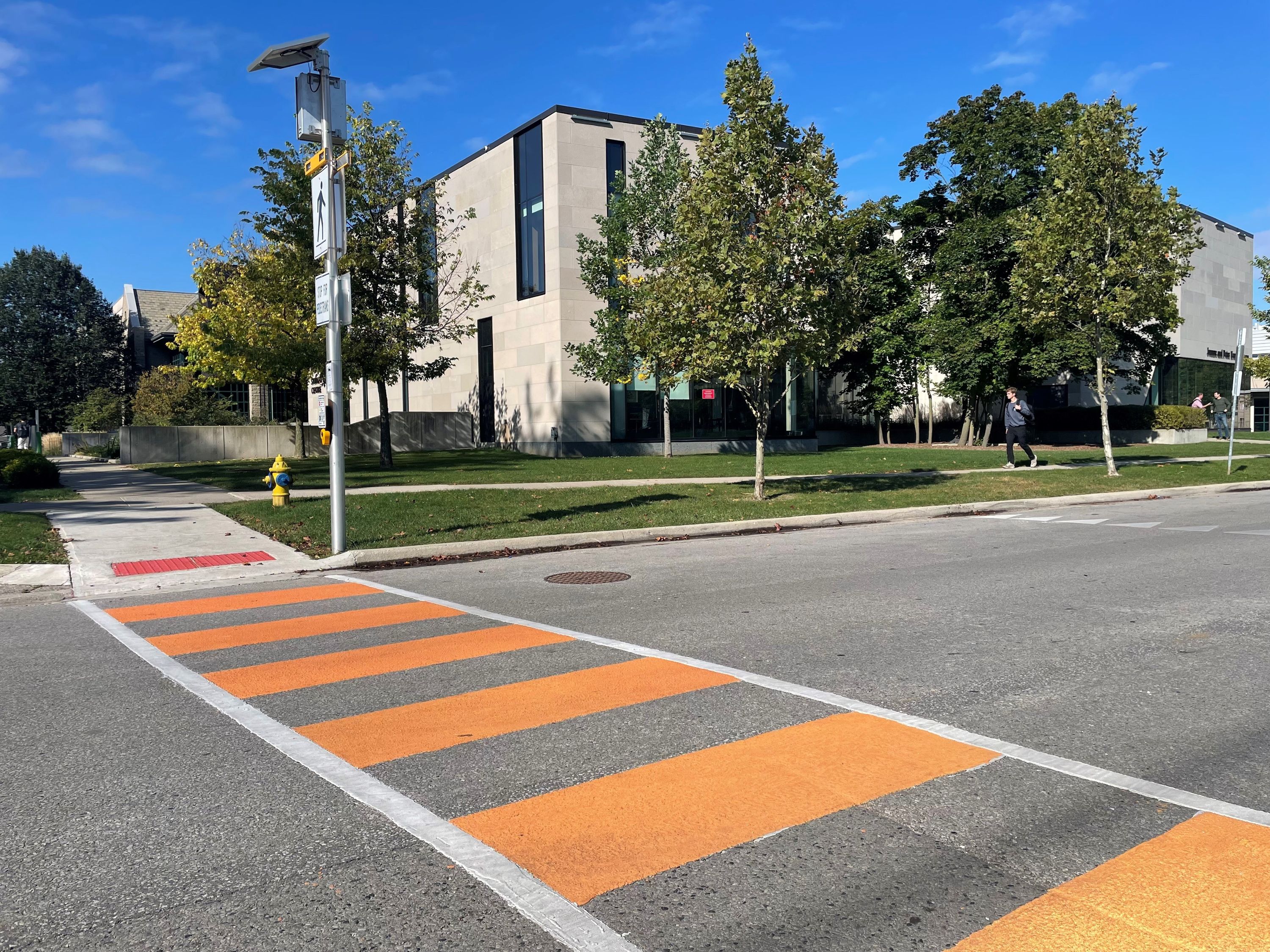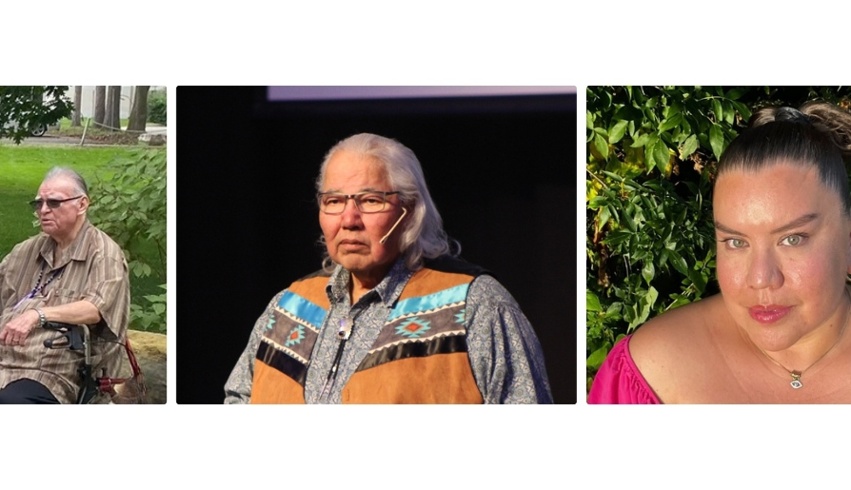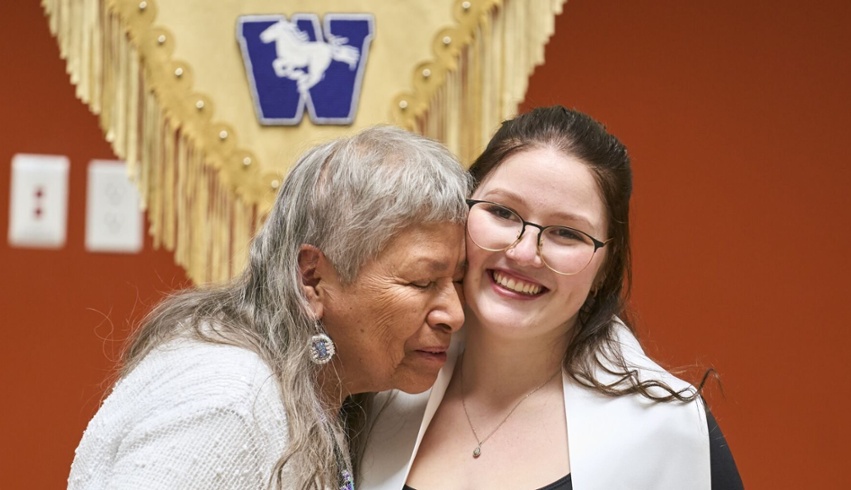National Day for Truth and Reconciliation
In June 2021, the government passed legislation to make September 30 a federal statutory holiday called the National Day for Truth and Reconciliation (NDTR). This day provides an opportunity for every Canadian to recognize and commemorate the legacy of residential schools. This may present itself as a time for quiet reflection or participation in a community event.
Read more about the National Day for Truth and Reconciliation.
As part of the National Day for Truth and Reconciliation, attend a walking tour of The Medicines We Carry, a photography art exhibit by Indigenous artist and King's graduate, Bangishimo '15. Each panel will have a description to help you learn more about the image you are looking at.
The Medicines We Carry features intimate portraits of community members interwoven with connections to seven medicines: birchbark, cedar, sage, strawberries, sweetgrass, sunflowers, and tobacco. Through these portraits, Bangishimo disrupts colonial lineages, inscribing Black and Indigenous futurities into public memory, and emphasizing relationships to the land. The exhibit flows throughout the library and can be viewed during library operating hours from September 30 - October 4.
Library hours: Monday – Thursday – 8 am – 10 pm. Friday – 8 am – 6 pm.
Visit Western's Office of Indigenous Initiatives NDTR events page for information on other events.
Monday, September 30: National Day for Truth and Reconciliation
Sunrise Ceremony: 7 a.m. at the Wampum Learning Lodge
Ceremony protocol: arrive at 7 am sharp or just prior; skirts admired but not required; medicines provided to make offerings
A morning for visiting & reflection: 7:30 a.m.
Continental breakfast following Sunrise Ceremony - 7:30 a.m. until food runs out
Teachings at the top of each hour with Elder in Residence Betsy Kechego and Fire Keeper Mike Hopkins
Soft launch of the Indigenous Allyship Principles
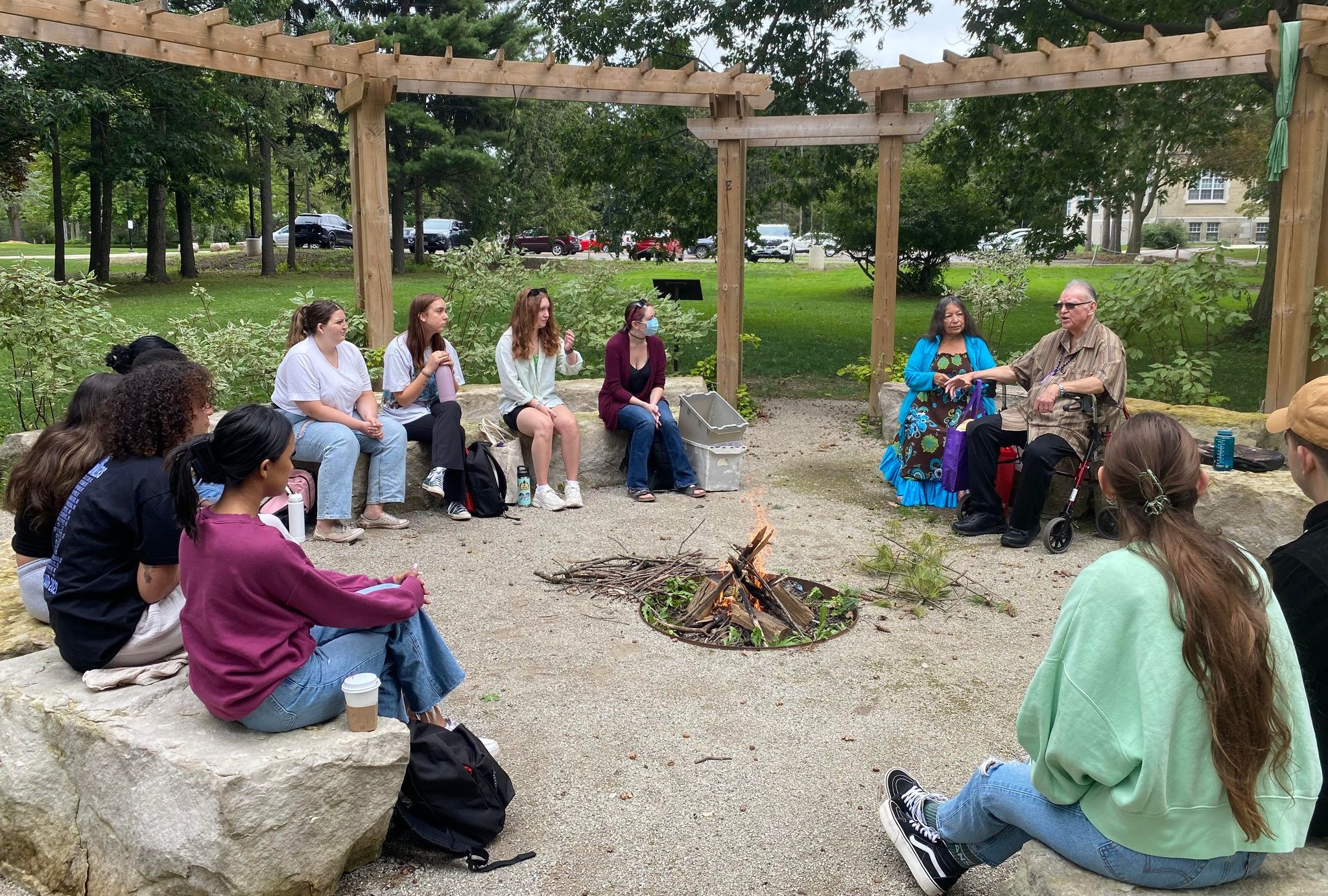 On September 8, 2023, students from the SJPS3383F: Ecological Justice class joined Indigenous Elders Dan and Mary Lou Smoke who held a welcoming ceremony at the Reflection Circle. The King's students had the opportunity to further understand the centrality of decolonization to ecological justice and the power of storytelling as Indigenous knowledge-sharing
On September 8, 2023, students from the SJPS3383F: Ecological Justice class joined Indigenous Elders Dan and Mary Lou Smoke who held a welcoming ceremony at the Reflection Circle. The King's students had the opportunity to further understand the centrality of decolonization to ecological justice and the power of storytelling as Indigenous knowledge-sharing
Indigenous Resources at King's
We recognize that reconciliation means nothing without action. At King’s we have a lot of work to do to create more and wider pathways to education for Indigenous students, faculty, alumni, and community members. As an educational institution, our purpose is to have impact in society through teaching and research. Our ongoing work with reconciliation for our community includes these initiatives:
- On September 30, 2022, Western University launched the Memegwaanh Indigenous Learning Honour (ILH) as part of its commitment to Indigenization and decolonization across the university and its affiliates. The ILH will recognize students’ engagement in efforts toward Truth and Reconciliation through academic coursework and extracurricular activities. Undergraduate students in any faculty at King’s University College are eligible to enroll in the Honor.
- Learning Guide: Indigenous Studies organized by Cardinal Carter Library.
- Learning Guide: Resources about Truth and Reconciliation (TRC) and the Catholic Church organized by Cardinal Carter Library and St. Peter's Seminary Library.
- King's is a member of Southern First Nations Secretariat's Collaborative with a shared commitment and responsibility to prioritize the needs and interests of aspiring, former and current post-secondary education students who are members of SFNS First Nations.
- King’s University College Students’ Council supports awareness of issues facing Indigenous communities and peoples, including annually sponsoring Indigenous Awareness Week, The REDress Project in support of missing and murdered Indigenous women and girls, and Orange Shirt Day related to impact of residential schools in Canada.
- All student leaders and Student Affairs employees engage annually in educational and awareness activities related to their roles in advancing the developing of programs that engage and support Indigenous learners at King’s and Western.
- King's established a new endowed student award for Indigenous learners. Gifts to the Indigenous Student Award were matched dollar-for-dollar by King's, and more than $50,000 was raised. For more information on this award and other financial assistance, visit King's list of financial resources for Indigenous students.
- The Reflection Circle on the King's Green provides an outdoor location for sacred gatherings, such as smudging ceremonies, for the Indigenous community.
- King's is a member of Indigenous Post-Secondary Education (IPEC) at Western, where we seek to listen and consult in an effort to advance Indigenous ways of learning and knowing on our campus.
- King's has partnered with the Office of Indigenous Initiatives and Indigenous Services at Western to provide a range of services for and with Indigenous learners including admissions, academic advising, personal and financial support.
Recommended Reading
These three books were recommended by Chief Cadmus Delorme of Cowessess First Nation:
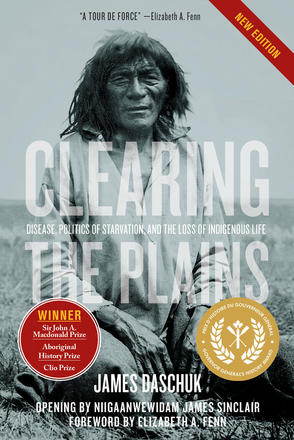
Clearing the Plains by James Daschuk – also available online
In arresting but harrowing prose, Daschuk examines the roles that Old World diseases, climate, and, most disturbingly, Canadian politics--the politics of ethnocide--played in the deaths and subjugation of thousands of Indigenous people in the realization of Sir John A. Macdonald's "National Dream." Winner of multiple awards, including the Governor General’s History Award 2014.
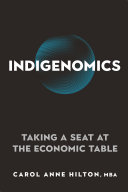
Indigenomics: Taking a Seat at the Economic Table by Carol Anne Hilton – also available online
Indigenomics lays out the tenets of the emerging Indigenous economy, built around relationships, multigenerational stewardship of resources, and care for all. Indigenomics calls for a new model of development, one that advances Indigenous self-determination, collective well-being, and reconciliation. This is vital reading for business leaders and entrepreneurs, Indigenous organizations and nations, governments and policymakers, and economists.
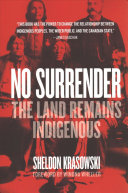
No Surrender: The Land Remains Indigenous by Sheldon Krasowski – also available online
Between 1869 and 1877, the government of Canada negotiated Treaties One through Seven with the Indigenous peoples of the Great Plains. Many historians argue that the negotiations suffered from cultural misunderstandings between the treaty commissioners and Indigenous chiefs, but newly uncovered eyewitness accounts show that the Canadian government had a strategic plan to deceive over the “surrender clause” and land sharing.
These books were recommended by Sara Mai Chitty, Curriculum & Pedagogy Advisor in Western’s Office of Indigenous Initiatives:
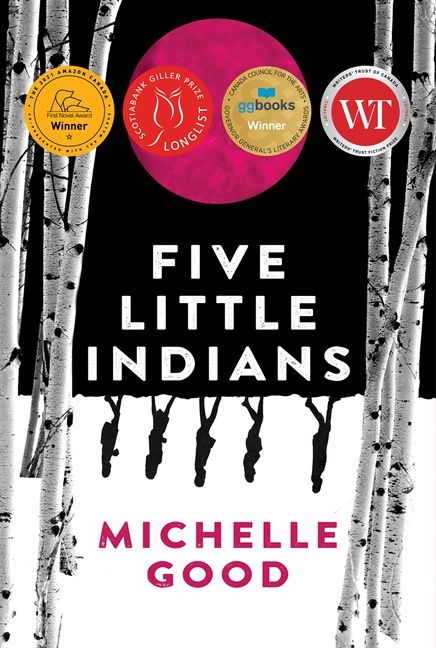
Five Little Indians by Michelle Good (no e-book, hardcopy only)
Taken from their families and sent to a remote, church-run residential school, Kenny, Lucy, Clara, Howie and Maisie are barely out of childhood when they are released after years of detention. With compassion and insight, Five Little Indians chronicles the desperate quest of these residential school survivors to come to terms with their past and find a way forward. Winner of the Governor General’s Literary Award for Fiction.
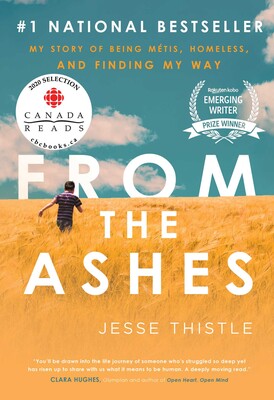
From the Ashes: My Story of Being Métis, Homeless, and Finding My Way by Jesse Thistle – also available online
In his multiple award-winning memoir, Jesse Thistle, once a high school dropout and now a rising Indigenous scholar, chronicles his life on the streets and how he overcame trauma and addiction to discover the truth about who he is. From the Ashes is about hope and resilience; a revelatory look into the life of a Métis-Cree man who refused to give up.
Watch Jesse Thistle's 2020 Veritas lecture, "Finding the Trail: A Métis Life Overcoming Adversity."
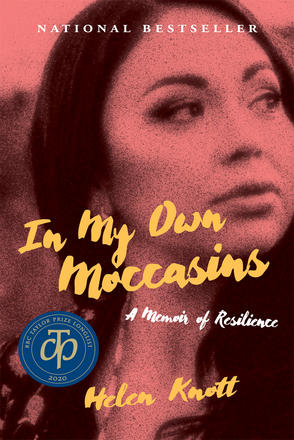 In My Own Moccasins: A Memoir of Resilience by Helen Knott – also available online
In My Own Moccasins: A Memoir of Resilience by Helen Knott – also available onlineHelen Knott, a highly accomplished Indigenous woman, seems to have it all. But in her memoir, she offers a different perspective. This award-winning memoir is an unflinching account of addiction, intergenerational trauma, and the wounds brought on by sexual violence. It is also the story of sisterhood, the power of ceremony, the love of family, and the possibility of redemption.
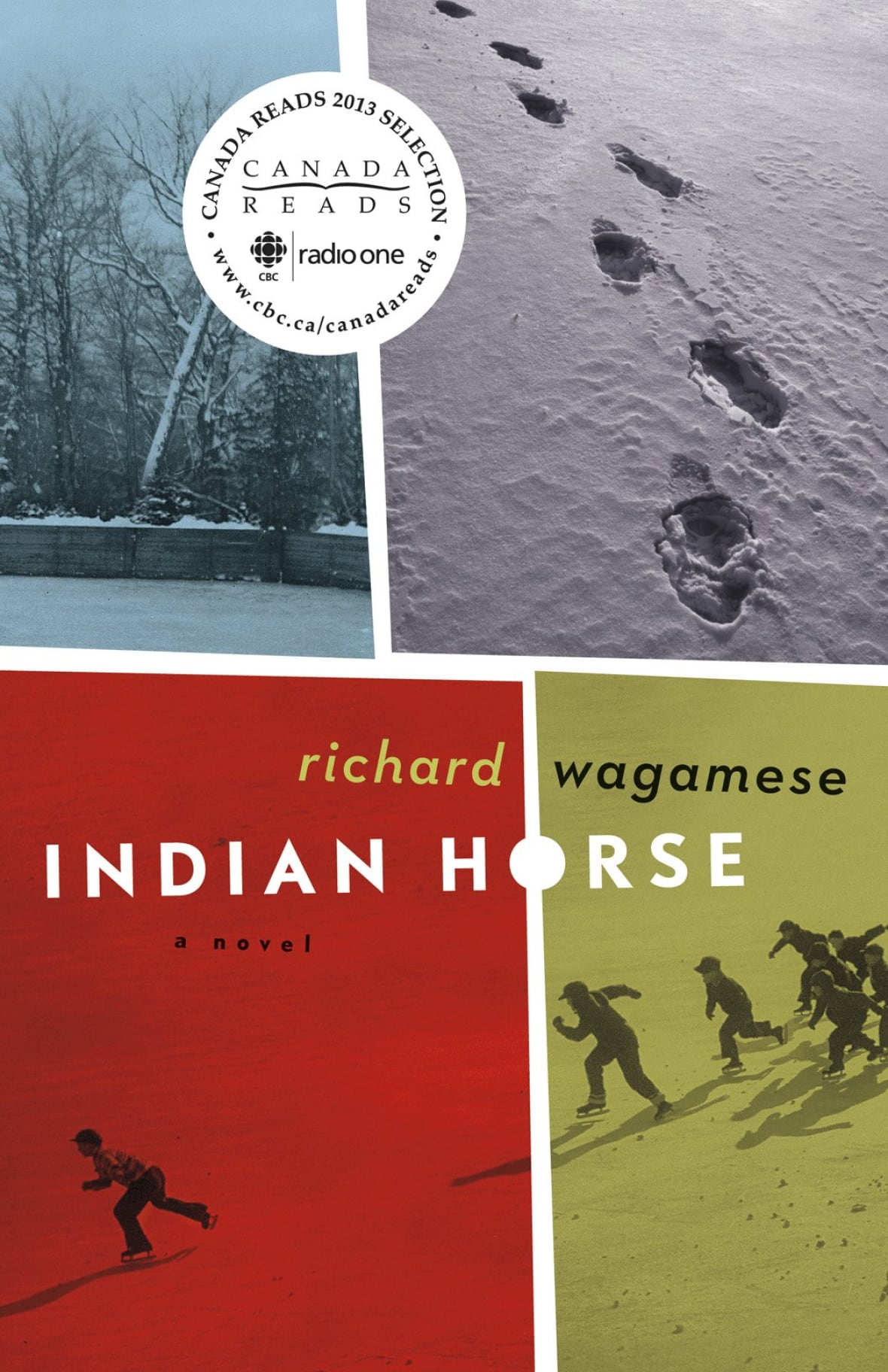
Indian Horse by Richard Wagamese – also available online and as an online video
Saul Indian Horse has hit bottom. Now a reluctant resident in a treatment centre for alcoholics, he’s surrounded by people he’s sure will never understand him. But Saul wants peace, and he grudgingly realizes he’ll find it only through telling his story, taking readers on a journey through the life he’s led as a northern Ojibway, with all its joys and sorrows.
Previous Lectures and Talks
Chief Cadmus Delorme of the Cowessess First Nation was the first speaker of the 2022-2023 Veritas Series for Faith and Culture. His lecture was "Truth and Reconciliation: What We Inherited, and Actions We All Must Take."
- Cindy Blackstock's 2021 Veritas Lecture, "Reconciling History: Echoes of the Past"
- Liz Akiwenzie's 2021 Write Place Opening Talk about Truth and Reconciliation and our collective responsibility to acknowledge and confront the consequences of colonialism
- Jesse Thistle's 2020 Veritas lecture, "Finding the Trail: A Métis Life Overcoming Adversity"
- Senator Murray Sinclair's 2019 Veritas lecture, "The Future of Truth and Reconciliation"
External Resources
- National Day for Truth and Reconciliation Resources at Western
- Indigenous Collections at Western Libraries
- 12 Ways to Engage in Truth and Reconciliation at Western
- Atlohsa Family Healing Services
- Taapwaywin, a new podcast series from the University of Victoria Libraries that focuses on previously unheard Indigenous stories from Survivors, Elders, and Knowledge Keepers, and gives listeners a chance to learn the truth before seeking reconciliation
- Truth and Reconciliation Commission of Canada
- Our Lady of Guadalupe Circle
- Kairos Canada
- Northern Bridge Community Partnership

